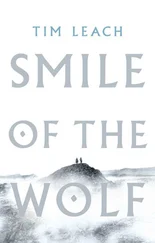There was no need to ask who it was who summoned him, for the girl held a red tassel in her hand, the gift for her service, a treasure beyond compare for a child that age. And there was no question of refusing such a summons, and so he set his horse behind the girl and let her lead him, as a warrior might have ridden before a king or captive.
He thought he might be taken towards the council fire – perhaps it was that Laimei wished to speak with him before the chieftains, for many feuds had been settled by their judgement. But they did not go towards the heart of the encampment, nor did they go to the proving grounds at the outer ring, where the warband sparred and trained. They went instead towards the second ring of the camp, a place between worlds where the sacred things were done.
A part of him knew then, but did not want to believe. Even when they came to those places where the ground was already black with blood, he told himself it was the sign of old sacrifices, that he was being taken to a seer or prophet. For he was a man who had risen from a grave on the ice, and one of the dream speakers might see an omen in that.
In a sense, he was being summoned to a sacrifice. For he saw it then, the sight he had witnessed many times before, the shape of his dreams. A killing circle, the Sarmatians in their war gear, the high chants carried on the wind. A taste of copper on his tongue, the feel of sweat upon his skin, as Kai said to the girl: ‘She commands me there?’
‘She does.’
‘Then you have done your duty,’ he said, absent fingers fumbling for some token to offer. He thought to give her some little trinket of war – a splinter of an arrowhead, a lock of hair cut from the head of a foe, but when one hand ran over another he found the ring half slipped from his finger. An omen, no doubt, for his father had worn that band of bronze, long ago.
He offered it to her, just as he had offered it to his sister before the battle on the river. And the girl’s eyes were alight but not quite believing, waiting for the trick.
‘It is yours,’ Kai said. The light caught on the bronze as it spun through the air, and the girl took it like a hawk taking a sparrow.
The ground was soft beneath his feet as he dismounted, the circle of men parting like water before him, accepting him as one of their own. All about him was the stink of sweat, the chants of war, the rattle of arms and armour. And when he made his way to the front rank of the circle, he saw what lay within, the sight from his dreams. A man upon his knees, and a boy standing above him, weapon held high.
The man looked young to be in such a place. His temples touched by silver and his face worn like old stone beneath a river, but he could not have seen fifty summers. Kai wondered what infirmity kept that man from his saddle – fingers too pained and weak to hold the reins or steady a lance, or that splintering pain at the base of the spine like an unseen arrow shot by the gods. It was not that his mind had been broken by curse or fever, for those eyes of his were bright with life and love, as he looked upon his executioner.
The boy was young – perhaps the rest of the doomed man’s sons lay dead on the ice of the Danu, and this was the eldest who was left. No colour in his face, but his hands steady on the haft of the axe. Kai watched the boy, and prayed for his courage.
The chanting grew louder and louder, the clash of arms all too real, until Kai could feel that quickness of heart and the heavy sweat on his skin that came before the battle, his body remembering the killing, the closeness of death.
As one, without a sign being given, the circle fell silent. It was time.
But the boy did not swing. His father dropped his gaze – hoping, perhaps, that this would make it easier. Lips moving, some words to encourage his son, but they seemed to do no good.
The boy’s eyes were lost, imploring, looking about the circle for help. And when he turned his face to Kai, there was some recognition there. The child’s face became that of a man for a moment, for long enough, for he had seen the future that waited for him if he did not act. And so he swung the blade down, and painted the snow red.
For a boy, it was a killing well done. It took him only three strokes of the axe before the man at his feet lay still and silent. The man was brave, too – he only screamed once, right at the end.
All was as it had been before, as though it were a trifling thing that they had witnessed. The circle broke, the air alive with stories of the dead man, men and women making their way from that sacred circle as though they woke from a dream. Some came forward not to embrace the boy, but to clap him on the back and offer him wine for doing a man’s work. And there were those few who stood still in the moving crowd, like pillars of stone thrust up from the shifting sea.
Arite and Lucius on the other side of the circle – Kai did not know if it was chance that brought them there, or if they too had been summoned as witnesses. But Arite did not seem to see him, her gaze fixed on the boy beside his bloodied father, her face corpse grey.
He had no sense of moving, but he was at her side then, his hand to the crook of her arm.
‘Can you help me away from here?’ he said.
She nodded slowly. ‘Yes,’ she said. ‘I can do that.’
To the horses – restless beneath them, as they rode in the close fashion, side by side. The way that a father teaches a son to ride, a daughter guiding her ailing mother on one last journey across the plains towards a burial ground. And lovers too, sometimes.
Soon they were back to the tented wagon, moving inside, the sunlight dimmed by the thick felt that surrounded them. Kai and Arite huddled up together, for comfort as much as warmth, and the Roman sat apart, quite still. Kai could not shake the image of him as a sort of honour guard, a charm or protection of some kind. A man from another world, who might protect them from the cruelty of their own.
‘Where is Tomyris?’ Kai asked, for he could think of nothing else to say.
‘Laimei sent for her,’ Arite said, ‘to practise with horse and spear.’ Her voice lowered. ‘I suppose she did not want the child to see it.’
Silence once more. The aching kind of silence, a longing for words that cannot be spoken.
But then there was a voice – the Roman, speaking slowly and carefully in their tongue, for he had learned much over the winter. ‘Who were they?’ he said. ‘That man and boy.’
‘A father,’ answered Kai. ‘And a son.’
An unspoken question, heavy in the air.
‘When a man grows too old to fight,’ Arite said, ‘what does he do? In Rome?’
‘Retires to his farmlands. Plays at politics, or…’ Lucius hesitated, and mimed writing in the air, for there was no word for it in the Sarmatian tongue.
‘Your chieftains do that, the ones with gold. And what do others do, those who do not have gold?’
‘Their families take care of them.’
‘Those without families?’
A pause. ‘They beg. Or starve.’
Arite nodded slowly. ‘The steppe is no place for those who cannot ride. And we can care for the children, but not the old. And we do not care to beg for our lives.’
‘A man hopes to die in war,’ said Kai, ‘or in some chance accident from the gods that might spare him the shame of growing old. If he does not, he is given a different kind of death. At the hands of his eldest son.’
The Roman said nothing at first. Then: ‘It is always so?’
‘There are stories. Of sons who spare their fathers in the myths, like Badan and Badanaquo. But they are just stories that fathers tell to little boys so that they will not be afraid. It is always so.’
‘Why tell me this?’
‘I do not know,’ said Kai. ‘Perhaps I wonder how it seems to a Roman.’
Читать дальше
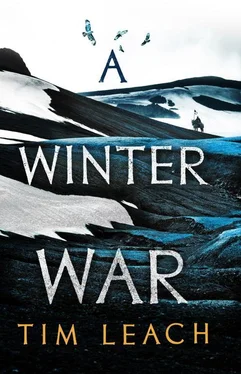
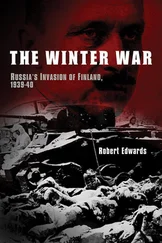

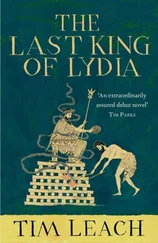
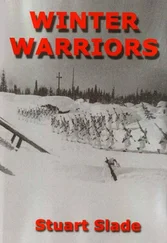
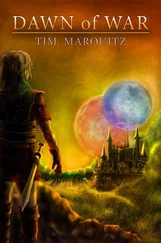

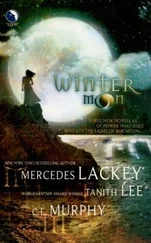
![Стюарт Слейд - Воины зимы [Winter Warriors ru]](/books/401383/styuart-slejd-voiny-zimy-winter-warriors-ru-thumb.webp)
